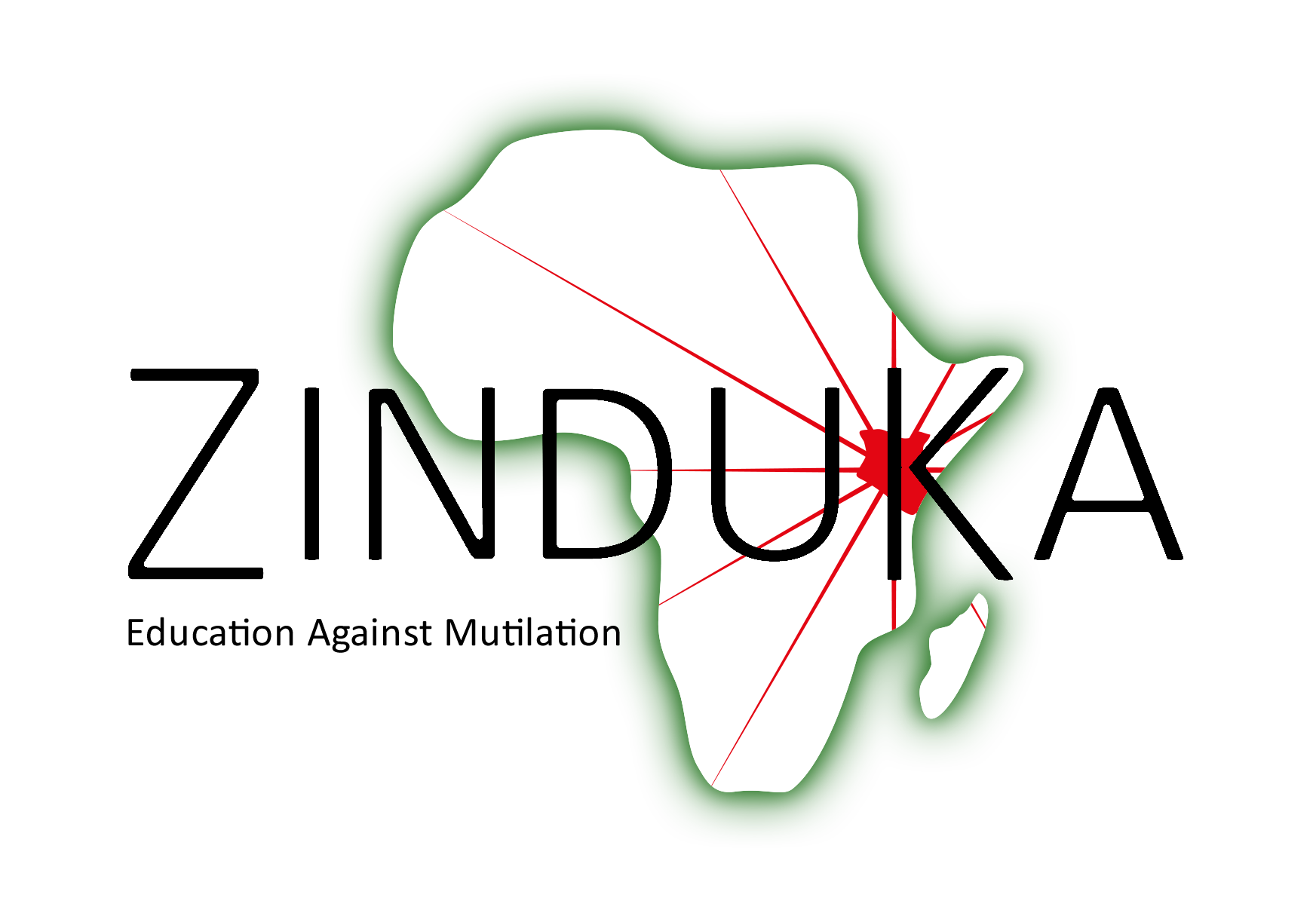Our Camps
Through empowerment camps, we were able to provide a safe place for a total of 525 girls in 2016, 2018, and 2019 while circumcisions were taking place. We were able to continue providing this safety through home visits to the families after the camps ended. In this way, we work closely with families both during and after the camps. Through father-daughter and mother-daughter seminars, which strengthen the bond and mutual understanding, but especially to show the mothers and fathers that a future without FGM/C (Female Genital Mutilation/Cutting) is possible and above all the right decision for their daughters and granddaughters.
During the camps, the girls attend classes specifically designed to address the issues of FGM/C and children’s/women’s rights. For example, the subjects “FGM/C in general” ( What does it mean to be cut in the first place?, Which types are there? etc.) “Female Anatomy”, ” Sexually Transmitted Diseases”, “Women’s and Children’s Rights”, “Cultural Traditions” and “Social Skills” are taught.
Furthermore, our camp participants attend expert seminars and lectures by affected women, role models, activists, staff from other aid organizations such as World Vision and the Children’s Officer.
The last day of the camp is then the absolute highlight of the social program for our girls. We celebrate the “Alternative Rite of Passage” with them. There is a big party, with many guests, among others the families of the girls, as well as politicians and tribal elders. There is music, dancing and the actual ritual – the girls walk through the streets, decorated with flowers and chains, singing, dancing and thus presenting their maturation into women.
It’s a ceremony just like the one that takes place after circumcision. Only without the horrible “cut”.
Zinduka e.V. finances such a camp through collaborations with partner organizations, church institutions and private supporters.
In the past, the camps were among others financed by: Catholic Church Marburg, Action Five e.V. Bonn, Tatort – Straßen der Welt e.V., Wagner Holding GmbH, Bettina von Arnim Schule Marburg, World Vision Kenya, as well as a great number of private supporters.
The costs for this year’s camp (approx. 10 days) are approx. 150€ per camp participant. These costs consist of:
- Food (three meals, snacks, clean drinking water)
- Hygiene items (sanitary pads, toilet paper, soap, disinfection, masks)
- Medical supplies (provided on-site by medical personnel or at the hospital)
- Writing materials (notebooks, pens, flip charts, chalk, markers, craft materials, etc.)
- Accommodation (compensation for use of buildings)
- Administration (compensation for staff, as well as instructors and educators)
- Closing ceremony (food, T-shirt, certificate)
- Communication (follow-up visits with families, communication during the camp)
For this year (2021), Zinduka plans to hold two camps with about 100 girls each. The Council of Elders in Kuria announced at the end of August 2021 that FGM/C will be practiced in both October and December. This will be a 7-10 day period in each case. Costs for this total approximately 30,000€ (150x100x2).
Personal feedback from camp participants and their parents:
- “I didn’t know how bad FGM is and now I will always say NO.”
- “I have learned to say NO.”
- “I want to go to school and become a doctor one day.”
- “What my daughter learned in your camp was incredible. She taught it to all her siblings and friends in school and she also improved, she has better grades now. She is a different person.”
- “My daughter is very outgoing and self-confident now.”
- “Our daughter told us that she will never undergo the cut.”
... witnessing up close...
an excerpt from Antonia’s diary (December 2012)
“What is weighing heavily on my mind here at the moment is the time of circumcision and female genital mutilation, which has become a daily occurrence since the beginning of December. Every morning many boys and girls are circumcised and mutilated and then march home cheering, dancing and singing. I am trying to understand the culture, however I am not quite succeeding yet….
There were still camps organized by local development organizations in 2010, which were set up during the circumcision period. They were contact points for girls who were forced by their parents, but were strong enough themselves to resist the mutilation and run away.
I planned to visit these very camps, to support them and to engage with the girls there. However, the search was unsuccessful. The camps have not taken place since this year. Supposedly, there are no more girls who are forced. In fact, I get to see how many girls want to endure the cruel act voluntarily. For example, because their friends also do it and they are “uncool” if they are not mutilated as well. Or also because they are afraid of not finding a husband or being chased away by the man’s family, because they could only accept a cut woman.
The fact that it is already illegal to mutilate girls is known to the people of Kuria, but does not interest them at all. The police even arrested the female mutilator last week when the whole thing started and banned the procedure. However, the Kuria were outnumbered with machetes, knives and dangerous objects and recaptured the woman. Nevertheless, she is not mutilating girls this year. Therefore, those who want to be mutilated now have to walk to the nearest community where the procedure is still possible. That makes over 12 kilometers that the girls have to walk before and after the event. Some arrive at our home in blood-bathed robes. The puddles of blood on the street are almost normal for me….
Fortunately, I live in a village where the young people are very strong and almost all of them have opposed female genital mutilation. Together with my host sister, we have already talked our heads off and tried to convince other stubborn girls not to get cut as well. Unfortunately, that’s all we can do for now…”
